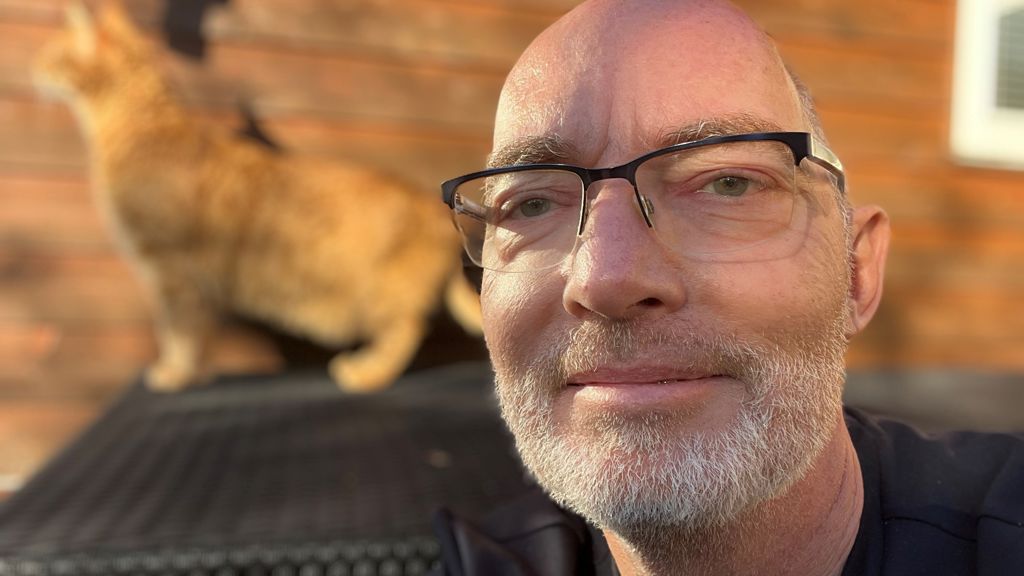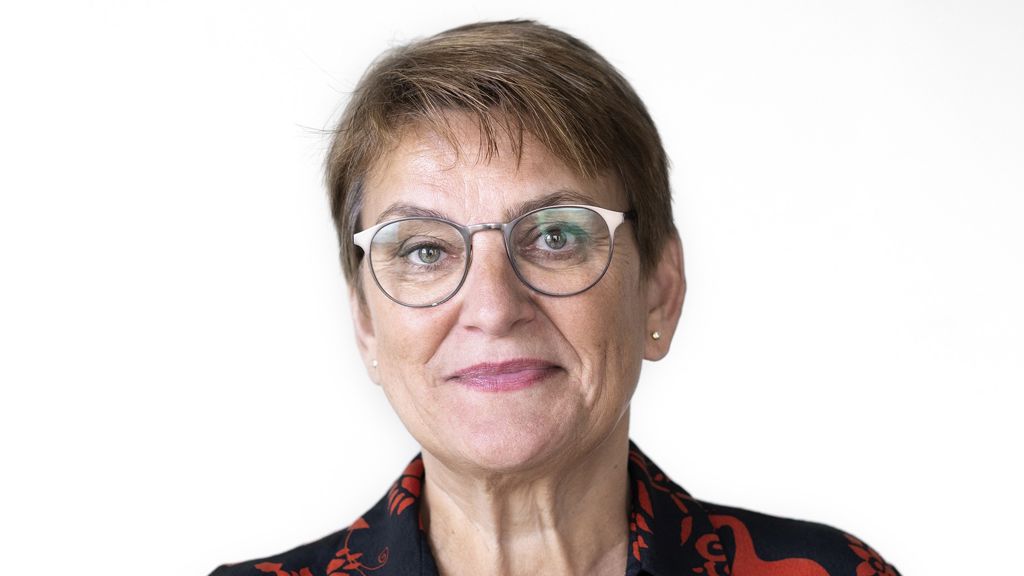Suddenly the eyesight in one eye disappeared
It was sad to say goodbye to Nordea after 42 years, but for personal banking adviser Klaus Frederiksen there was no longer any choice. "When it had to be, I got the best help from Charlotte", he says about the union advisor from Finansforbundet in Nordea's counselling team
"I got a really nice severance agreement."
Actually, personal banking adviser Klaus Frederiksen from the branch in Farum had planned to work for another three or four years before retiring.
"My work has been a very large part of my identity. I managed to stay 42 years at Nordea, and both customers and colleagues have meant an incredible amount to me over the years.”

A few years ago, however, Klaus Frederiksen began to feel symptoms:
"They came insidiously, I became stiffer motorically, felt pain in my legs and feet, and my ability to concentrate became worse. I could no longer do the same as before. Two years ago I was diagnosed with Parkinson’s disease.”
400 customers
Gradually he also found it more difficult to concentrate, but he continued to look after his 400 customers:
"I know them all, and I took great care to keep in touch with them."
By agreement with his boss, the homework was turned up a bit, making him keep the job, but also rest when the fatigue hit him more and more often due to the illness.
On 9 March, however, a drastic development took place, and his fatigue has since been much more distinct:
"A very bad headache hit me and and I briefly lost the eyesight in one eye while I was sitting at my home workplace working."
He was admitted to the hospital in Hillerød with a suspected blood clot. Since then he didn’t come back to work again. He called in sick and eventually had to realize that it was time to leave the labour market.
"It was sad for me to accept it, and at first flexible work was mentioned as an option. But I got much worse and couldn't take it anymore. Sometimes you have to listen to friends and surroundings and understand that it is no longer possible. It was the right choice, I can see that now," says Klaus Frederiksen, who, among other things, is challenged by his voice, as part of the normally occurring symptoms of the disease.
Never alone
One of those he listened to was his union representative, who encouraged him to speak to the union advisor at Finansforbundet in Nordea’s counselling team, Charlotte Hansen.
"It was immediately clear to me that Charlotte is incredibly competent being on my side. She is well-liked at Nordea and knows what to secure in my situation in connection with resignation. She has a lot of experience, is determined and a natural authority - she has the respect from the employers," Klaus Frederiksen praises her.
He sparred with Charlotte several times on the phone and in online meetings, and she also attended the physical meeting at the bank with People and his leader when the terms had to be negotiated.
"Thanks to Charlotte, I have never felt alone in the process. She has also promised to go with me and be a bystander when I meet the municipality about possible early retirement. The support from her has meant a lot since I got really bad.”

He is quite satisfied with the agreement he was able to negotiate:
"I think I have been treated well by my employer".
Financially, this means that he and his wife can stay in their house for the next ten years if they want to.
A relief to get rid of performance requirements
In his career, Klaus Frederiksen has been branch manager at three locations, Lynge, Nærum and Hørsholm/Usserød. For the past ten years, he has been a bank advisor in Farum.
"In the end, it was a great relief to let go of the entailed requirements of performing. Saying goodbye to colleagues was difficult though.”
On 1 September he handed in his laptop:
"I said goodbye to my colleagues and received a nice parting gift from them and the bank - and received nice farewell words from my leader. It was a good ending, although of course it was a sad way to end my many years at the bank.”
To his delight, some of the customers have subsequently contacted him, including via Facebook. He also has private friends still working at Nordea, so he has not completely lost contact with his workplace.
Moving forward without the work identity
In addition to the help from the union advisor, Klaus Frederiksen has received psychological help, covered by the health insurance as part of the employment.
"In connection with my resignation, I had a good talk with a psychologist, among other things about how to move forward when much of one's identity is tied to one's work."
One of the important things is to keep up the training. He attends special Parkinson's training with a physiotherapist twice a week and exercise by himself twice a week. Additionally, he plays table tennis for people with Parkinson disease.
Last autumn, he also participated in a three-week exercise stay at Montebello in Spain, the Capital Region's offer for those affected by illness, in need for special training.
"I was sent by the municipality, and it made a big difference for me. It was very motivating and made it clear how important it is to exercise.”
Golf is a joy
He has been active with golf, running and cycling over the years. It will benefit him now in his need to be as physically active as possible to keep the disease at bay.
Golf in particular has been a strong presence in his life. He has many friends at the golf club in Lynge, and once had a golf handicap as low as 3. Occasionally, he can still manage nine holes on painkillers.
"I play as much golf as my physique allows, but my legs hurt and I have to rest."
Fortunately, the strength to travel is intact, so this November he has an eight-day trip to Dubai on the schedule, and in the beginning of 2024 the plan is to go on a golf trip with friends.
"Warmth is really good for the body when you are sick. Golf trips are still a joy, as long as I'm with friends knowing my needs and willing to help when I need it," says Klaus Frederiksen, who often makes use of driving in golf buggy and is generally aware of how much the body can handle.
"Unfortunately, since no one can say anything precise about my future prospects, it is important to live out my travel dreams now. I want to use and enjoy life now, not put it off.”





